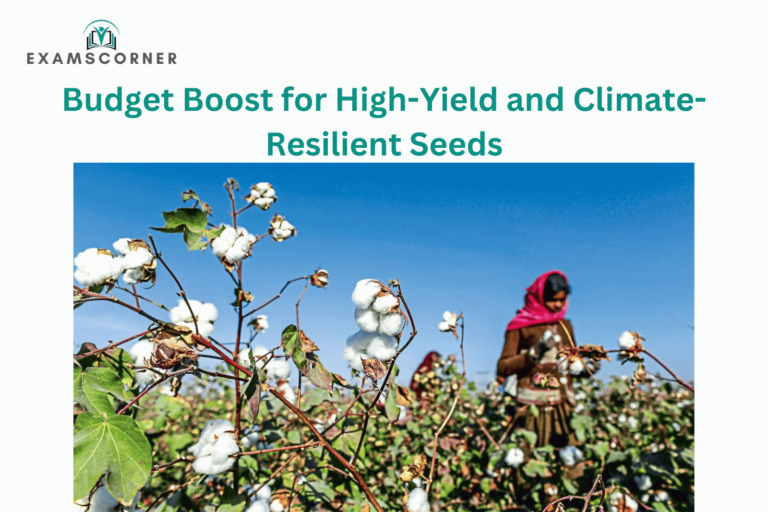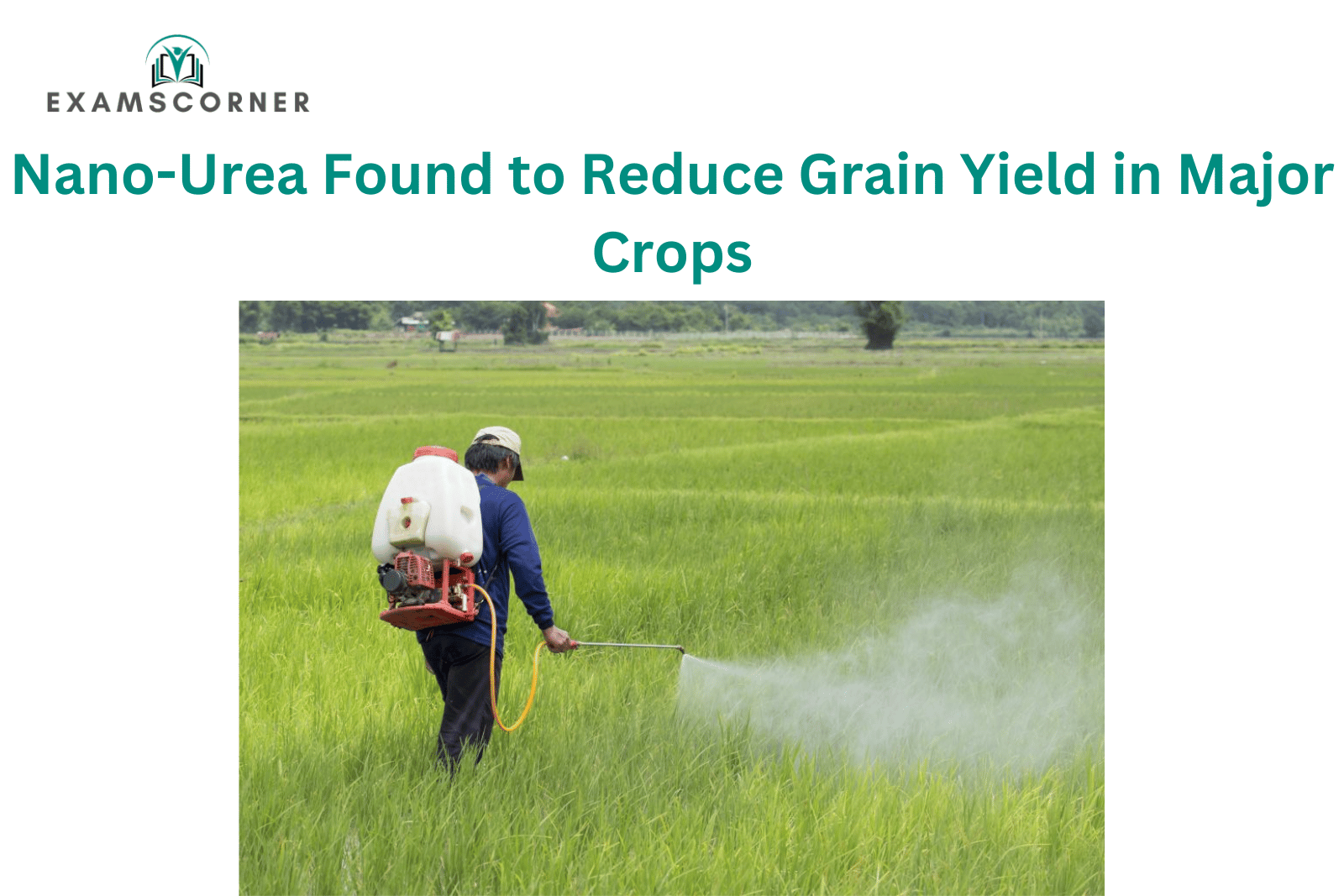Introduction
The Union Budget for FY26 is set to deliver a significant push for the agriculture sector with a focused investment in research and development of high-yield and climate-resilient hybrid seeds. This initiative aims to address shortages in essential commodities such as pulses, edible oils, and cotton, while also improving farmers’ incomes and ensuring food security in the face of climate challenges, in this article explained the Budget Boost for High-Yield and Climate-Resilient Seeds.
Addressing Agricultural Challenges
India’s agriculture sector employs approximately 42.3% of the population and contributes 18.2% to the GDP. However, it is grappling with various challenges, including climate change, which has resulted in inconsistent yields. For instance, cotton imports are projected to rise by 42% to 2.5 million bales in FY25, while exports are expected to decline by 37% to 1.8 million bales, according to the Cotton Association of India (CAI).
To tackle these issues, the Centre plans to develop climate-resilient seed varieties that can enhance productivity and stabilize incomes for farmers. This strategy is part of a broader effort to reduce dependence on imports and improve the domestic supply chain for key crops.
Increased Budgetary Allocation
In FY25, the Ministry of Agriculture’s spending is expected to reach ₹1.36 trillion, marking a significant 16% increase from previous years. This includes an additional allocation of ₹13,407 crore approved by Parliament in January. Key highlights of this budgetary increase include:
- Agricultural Education: Funding has risen from ₹2,574.36 crore in FY24 to ₹2,780.39 crore in FY25, reflecting an 8% increase.
- Agricultural Research and Education: The Department of Agricultural Research and Education received a marginal increase, with its allocation rising from ₹9,876.609 crore in FY24 to ₹9,941.09 crore in FY25.
Additionally, the government has announced the release of 109 high-yield and climate-resilient varieties of 32 crops, which will take about three years to reach farmers.
Boosting the Seed Industry
India’s seed industry, currently holding a modest 1% share of the global seed export market, has immense potential for growth. The Confederation of Indian Industry (CII) has proposed a Production-Linked Incentive (PLI) scheme and a Research-Linked Incentive scheme to accelerate progress in this sector. With the right policies and infrastructure, India aims to capture 10% of the $14-billion global seed market by 2028, equating to approximately ₹10,000 crore.
To achieve this ambitious target, the government and industry stakeholders emphasize the need for:
- Seed Export Zones: Establishing zones equipped with greenhouses, processing and packing facilities, dry ports, and adequate storage infrastructure.
- Streamlined Regulations: Simplifying commercial and research operations across states and aligning central and state-level regulatory frameworks.
- Faster Approvals: Streamlining regulatory approvals to expedite market access for new seed varieties.
Declining Production Trends
Despite efforts to improve agricultural output, key commodities continue to face production challenges:
- Pulses: Production has declined from 27.3 million tonnes in FY22 to an estimated 24.5 million tonnes in FY24.
- Oilseeds: After a rise from 37.96 million tonnes in FY22 to 41.36 million tonnes in FY23, production dipped to 39.67 million tonnes in FY24.
- Cotton: Production has been inconsistent, peaking at 33.66 million bales in FY23 but declining to an estimated 29.93 million bales in FY25.
Ensuring Farmer Access to Quality Seeds
A critical component of the government’s strategy involves making certified, high-quality seeds available to farmers. Improved traceability and the involvement of agricultural institutions in seed development are expected to boost productivity and help meet production targets.
Conclusion
The Union Budget for FY26 presents a promising opportunity to transform India’s agriculture sector through targeted investments in seed research and development. By addressing climate challenges, enhancing seed quality, and building robust infrastructure, India can improve its domestic agricultural output, reduce import dependence, and establish a stronger presence in the global seed market (Budget Boost for High-Yield and Climate-Resilient Seeds). These measures will not only ensure food security but also uplift millions of farmers by providing them with the tools to achieve sustainable growth.






